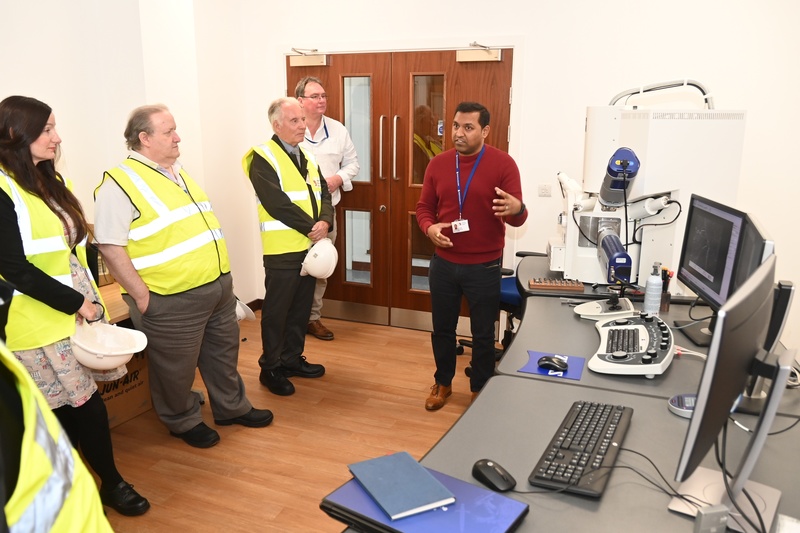Materials Processing Institute
Energy crisis highlights importance of innovation, UK Metals Council told
The current crisis around the energy shortage and resulting high prices underlines the importance of research and innovation within the foundation industries, the UK Metals Council (UKMC) heard.
A meeting of the body, which represents the UK metals sector to the government, was hosted by Teesside-based Materials Processing Institute, with members also touring its world-class facilities.
The council discussed various issues, the most pressing being the energy price surges that are driving up production costs across the sector.
Chris McDonald, who is Chair of UKMC and Chief Executive of the Institute, said: “The current energy crisis highlights just how vital it is that the UK becoming self-sufficient in generating renewable electricity, which will not only help the government meet its net zero commitments, but allows industry to avoid being at the mercy of the fluctuations of global wholesale prices and provides a more level playing field.
“It also underlines the importance of the research and innovation being undertaken here at the Institute, in terms of the transformation of industrial processes to improve efficiency, productivity and yield, and reducing carbon impact.”
Last year the Institute was awarded £22m by the government funded Innovate UK to deliver a five-year research and innovation PRISM programme to revolutionise the steel and metals sector in the fields of decarbonisation, the circular economy, and digital technologies.
Its prime aim is to increase the competitiveness of the UK steel and metals sector while supporting the government’s aims to achieve net zero by 2050.
Following the meeting, members of the UKMC toured the Institute’s campus, including its advanced materials, microscopy, and metallurgical facilities. They also visited the Normanton Plant, which is used for new product development and includes the UK’s only pilot electric arc furnace.
Pam Murrell, Chief Executive Officer of the Cast Metals Federation, said: “The Materials Processing Institute has some fabulous facilities that can be used to support the wider UK metals sector. Staying at the forefront of research and innovation is vital to its future viability and competitiveness on the international stage.”
Joe Lee, Programme Manager of PRISM at the Institute, said: “The work we are doing under PRISM is quite unique because it is applicable to the whole sector and supply chain and allows us to tackle problems experienced right across the foundation industries.”
Chris McDonald added: “The UKMC has an ambition that by 2030, the metals industry in this county will be sustainable not only financially, but from a climate perspective.
“This very much fits in with the Institute’s core aims of actively working on research and innovation projects to decarbonise the metals industry through the application of hydrogen and energy efficiency. We are also looking to further develop the circular economy, to extract metals from end products so they can be recycled and reused within the metals supply chain.”
ENDS
ISSUED ON BEHALF OF MATERIALS PROCESSING INSTITUTE
MEDIA CONTACT: Andrew Douglas 01325 363 436
Notes to editors:
Materials Processing Institute
The Materials Processing Institute is a research and innovation centre serving global steel and materials organisations that work in advanced materials, industrial decarbonisation, the circular economy and digital technologies.
The Institute has served as the UK’s national steel innovation centre since 1944 having been set up by Sir Winston Churchill’s wartime government just before D-Day to equip the British steel industry for post-war reconstruction. It celebrated its 75th anniversary in 2019.
Through collaboration with its customers, the Institute provides a range of technology and R&D based services and consultancy. It also has pilot and demonstration facilities and an SME Technology Centre to support supply chain businesses with the development of new technologies and products.
Works with: steel, metals and alloys, chemical processes, aerospace and defence, energy, mining and quarrying, construction, rail, transport, and infrastructure, offshore, subsea, and nuclear.
The Materials Processing Institute includes developments funded through Tees Valley Combined Authority, through the Local Growth Fund (Growth Deal).
back to Materials Processing InstituteImages


